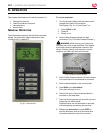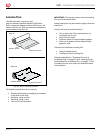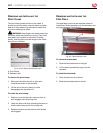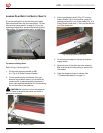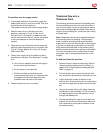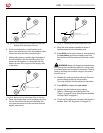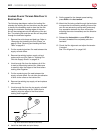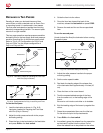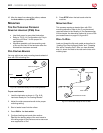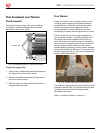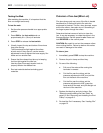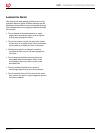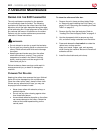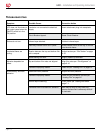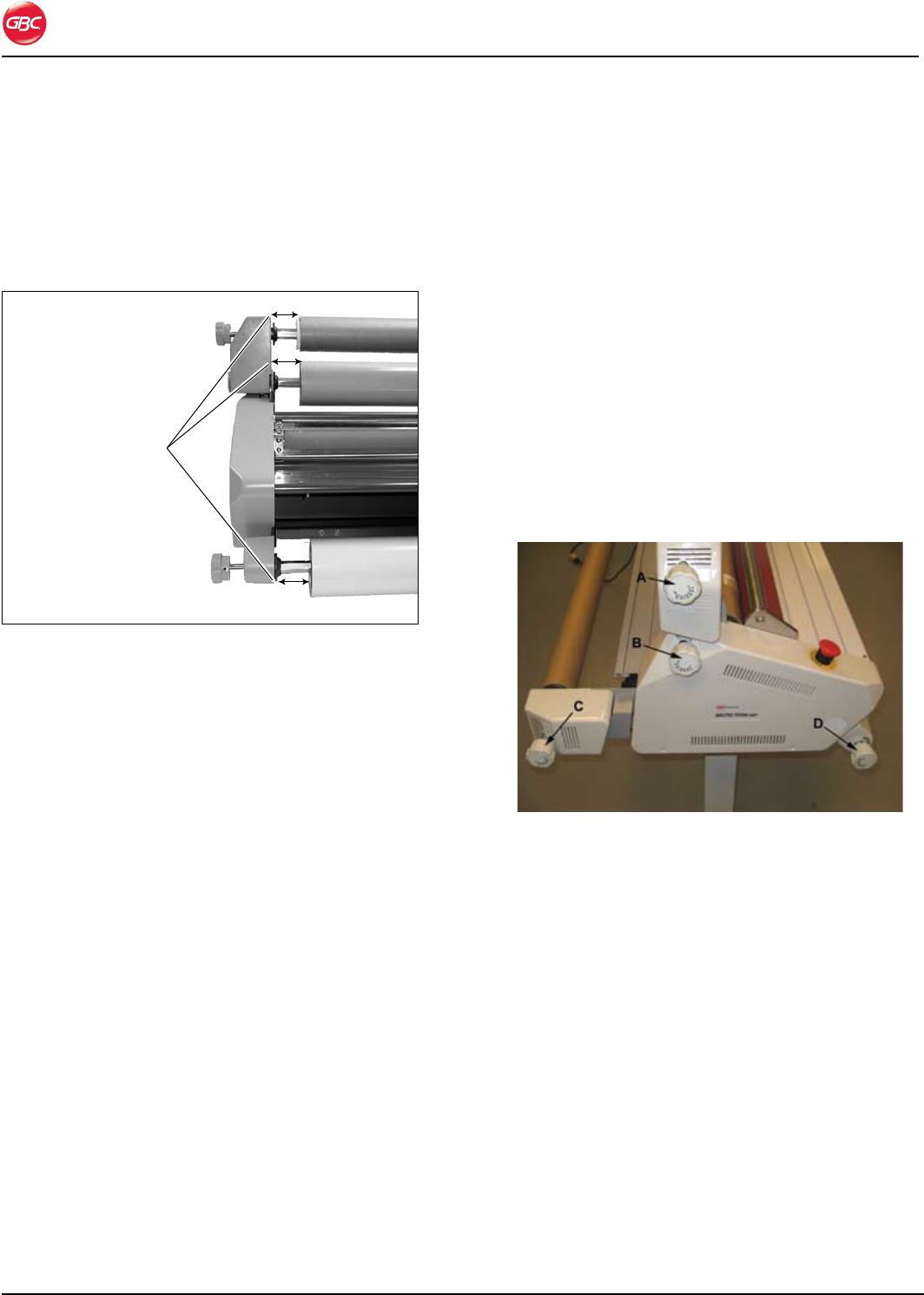
640t – Installation and Operating Instructions
Page 6-10
fi l m al i g n m e n t a n d te n s i o n
fi l m al i g n m e n t
The top and bottom supply rolls must be aligned
as closely as possible. Misalignment can cause
adhesives to stick to the rollers.
Measure here
Fig. 6-18. Measuring Points on a Typical Laminator..
To align the supply rolls:
Use a ruler to measure the distance between the 1.
left edge of the roll to the side frame.
Measure the distance between the right side of 2.
the roll to the side frame.
Shift the roll side to side to ensure that the two 3.
measurements are equal.
fi l m te n s i o n
Proper lm tension, known as brake tension, is the
minimum amount required to eliminate wrinkles in
the nished item. As the lm roll becomes smaller,
tension increases, thus the adjustment needs
to be loosened. Film tension should be checked
occasionally to ensure that the adjustment is correct.
The lm should be taut with no gaps between the
lm and pressure rollers. A properly adjusted roll of
lm should not require excessive force to turn by
hand. Film tension should be enough to introduce a
minor amount of drag as the lm unrolls. Insufcient
tension causes wrinkles, while too much tension
causes stretching (necking). Uneven tension between
the top and bottom rolls create curl. Too much upper
tension creates upward curl. Too much lower tension
bottom causes downward curl.
Fig. 6-19. Tension Adjustment Knobs and Motor.
The machine is equipped with external tension knobs
located on the left side. Turning the knobs clockwise
increases the tension while counterclockwise
decreases the tension.
Refer to “Tension Controls” on page 5-4.



